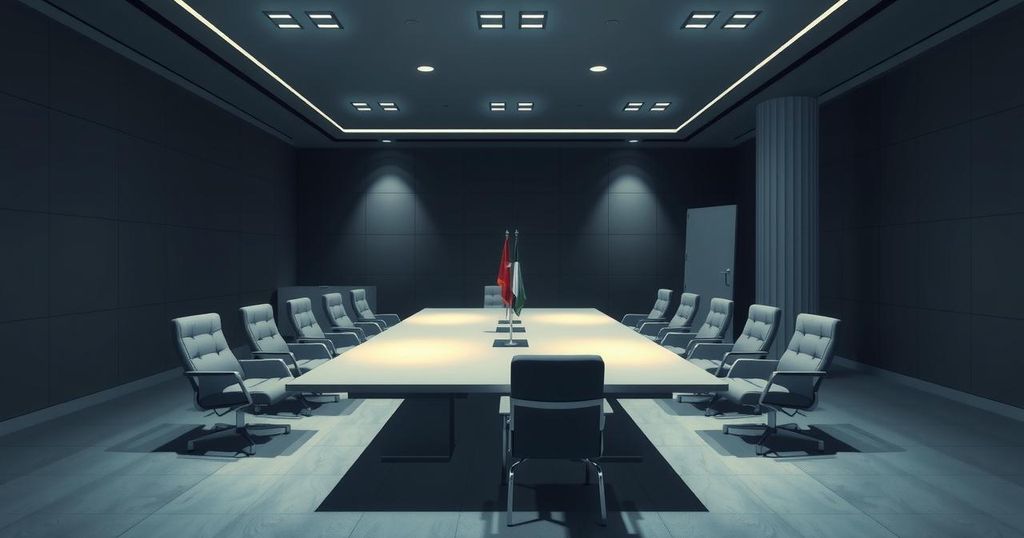World news
AFRICA, ANNA BORSHCHEVSKAYA, ASIA, BASHAR AL - ASSAD, CIVIL WAR, CONFLICT, DAMASCUS, EUROPE/ASIA, INTERAHAMWE, INTERNATIONAL RELATIONS, KR, KREMLIN, MOSCOW, NE, NORTH AMERICA, REUTERS, RUSSIA, RWANDA, SAMI, SAMIA NAKHOUL, SANCTIONS, SECURITY COUNCIL, SYRIA, SYRIAN CIVIL WAR, UN, UNITED NATIONS, UNITED STATES, WAR, WASHINGTON INSTITUTE
Sofia Rodriguez
0 Comments
Russia Critically Evaluates Syria’s New Leadership Amid Rising Violence
Russia criticized Syria’s new leaders in a closed UN meeting, warning of jihadist influence and likening recent sectarian violence to Rwanda’s genocide. Despite previous support for Assad, Moscow’s stance reflects a strategic effort to regain influence in Syria. Key concerns include the dissolution of the military and foreign fighter involvement, prompting discussions among global powers regarding an inclusive governmental transition.
In a recent confidential United Nations briefing, Russia exhibited strong criticism toward Syria’s new leadership, citing concerns about an increasing jihadist presence and drawing parallels between the sectarian killings of Alawites and the genocide in Rwanda. This discussion occurred despite Russia’s intention to maintain key military operations in the coastal region of Syria, where significant violence had been reported.
The violence was ignited by an attack on government security forces, which was attributed to former soldiers loyal to ousted leader Bashar al-Assad, resulting in a wave of Alawite killings across various provinces. While the Kremlin has previously supported Assad, it now emphasizes the need for national unity in Syria during collaborations with other countries. The closed Security Council meeting revealed a more critical stance, enabling Moscow to refine its influence in Syria’s future.
Moscow’s envoy, Vassily Nebenzia, reportedly made comparisons between the ethnic violence in Syria and the Rwandan genocide from 1994, where systematic massacres occurred. When questioned about this analogy, Nebenzia maintained the confidentiality of the meeting remarks but asserted the gravity of the situation. Experts, such as Anna Borshchevskaya from the Washington Institute, argue that Russia’s dual approach reflects its intricate strategy to regain its regional dominance while navigating its relationship with the United States.
Nebenzia also expressed condemnation regarding the new government’s dissolution of the Syrian army and significant workforce reductions, warning against a repeat of Iraq’s post-Saddam violence due to disenfranchisement. This raises concerns regarding the inclusion of various sects within the transitional government, although interim President Ahmed al-Sharaa stated plans for a more inclusive approach.
During the meeting, Russia underscored the precarious foundation being established by the new leadership, highlighting the role of foreign fighters in the ongoing violence. The US, France, and China echoed these concerns, emphasizing the necessity of protecting all Syrian citizens regardless of their ethnic or religious backgrounds in any future dialogue. The UN Security Council is working towards a consensual statement addressing the situation, with expectations of a prompt resolution urging cooperation among Syria’s diverse communities.
In summary, Russia’s recent criticism of Syria’s new leadership during a closed UN briefing reveals underlying concerns regarding the escalating violence and sectarian divisions within the country. By drawing parallels to Rwanda’s genocide, Moscow underscores the severity of the situation while balancing its strategic interests in maintaining military operations in Syria. As the international community seeks an inclusive political transition, the outcome will significantly impact Syria’s stability and the protection of its diverse population.
Original Source: www.usnews.com




Post Comment